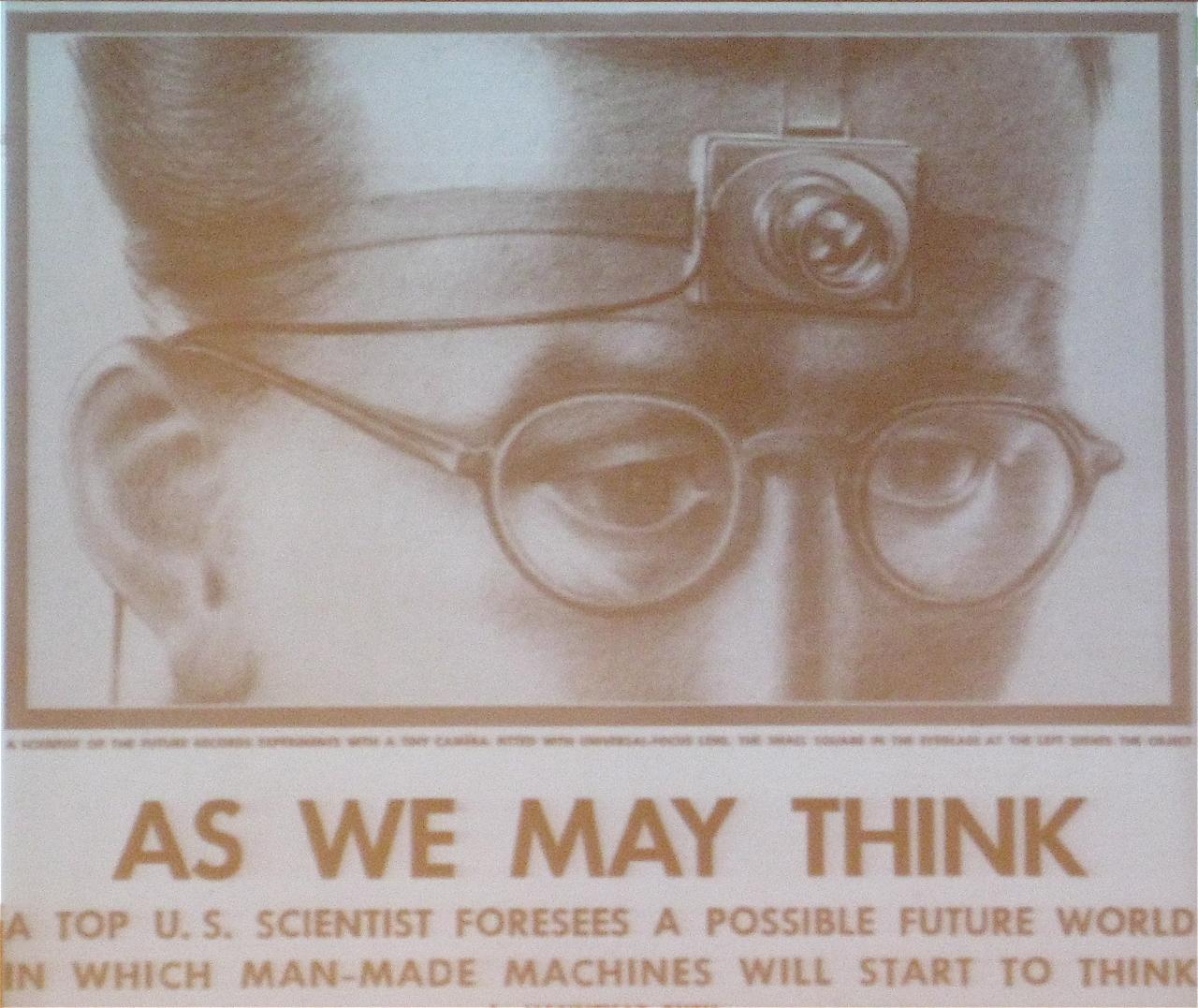


“As We May Think” an article written by Vannevar Bush focuses on the importance of the human memory and machines, intertwining them into the same scholarly article. I found this article to be very interesting because Bush writes about different machines that have allowed thoughts and discoveries to last longer than a lifetime and at least as long as the human race lives. Bush wasn’t exactly talking about any human thought but thoughts and ideas that had to do with science, “A record if it is to be useful to science, must be continuously extended, it must be stored, and above all, it must be consulted.”. Bush talks about things like photographs, magazines, newspapers, and more. He comes to the final thought of a machine called the “memex”, he describes it like this, “A memex is a device in which an individual stores all his books, records, and communications, and which is mechanized so that it may be consulted with exceeding speed and flexibility. It is an enlarged intimate supplement to his memory. It consists of a desk, and while it can presumably be operated from a distance, it is primarily the piece of furniture at which he works. On the top are slanting translucent screens, on which material can be projected for convenient reading. There is a keyboard, and sets of buttons and levers. Otherwise, it looks like an ordinary desk.”. This is known today as a computer, the interweb, a laptop. This was Bush’s final stop and solution to being able to keep “man” thoughts and more in one place. Although the “computer” was invented in 1833 it was not what we know today. In Bush’s essay, he describes what we know today as a desktop or a laptop. This essay was written in 1945 and the first desktop computer was released in 1974, a personal computer for man, which was also the year Bush died. Towards the end of the essay, he says “Yet, in the application of science to the needs and desires of man, it would seem to be a singularly unfortunate stage at which to terminate the process or to lose hope as to the outcome.”, so hopefully he was alive to see his thoughts come true. Bush was truly a man of science.
“Long Live the Web” by Tim Berners-Lee was an attention grabber from only reading the first page. Tim really knows what he’s talking about, he studied computer science at The Queens College and is now a “professorial fellow” of computer science at Oxford University. Berners-Lee makes a good point right off the bat about our privacy and how the world wide web was supposed to be something for the people, not the government yet the web has become capitalistic. He talks about how the government no matter what kind is monitoring its people. Basically Berners-Lee writes about how the web was designed for one thing and now it’s been taken advantage of for something completely different. One thing Berners-Lee mentions is that the web is more critical to free speech than any other medium which is so scary. Towards the end of the article though Berners-Lee talks about how important it is for everyone to come together and use the web for its sole purpose which I found very interesting. There are so many smart people and the web was built for people to be able to create, which is why I think he says it is important for everyone to come together and respect the values of human rights which the web was made to do but to also give a place of freedom for all.